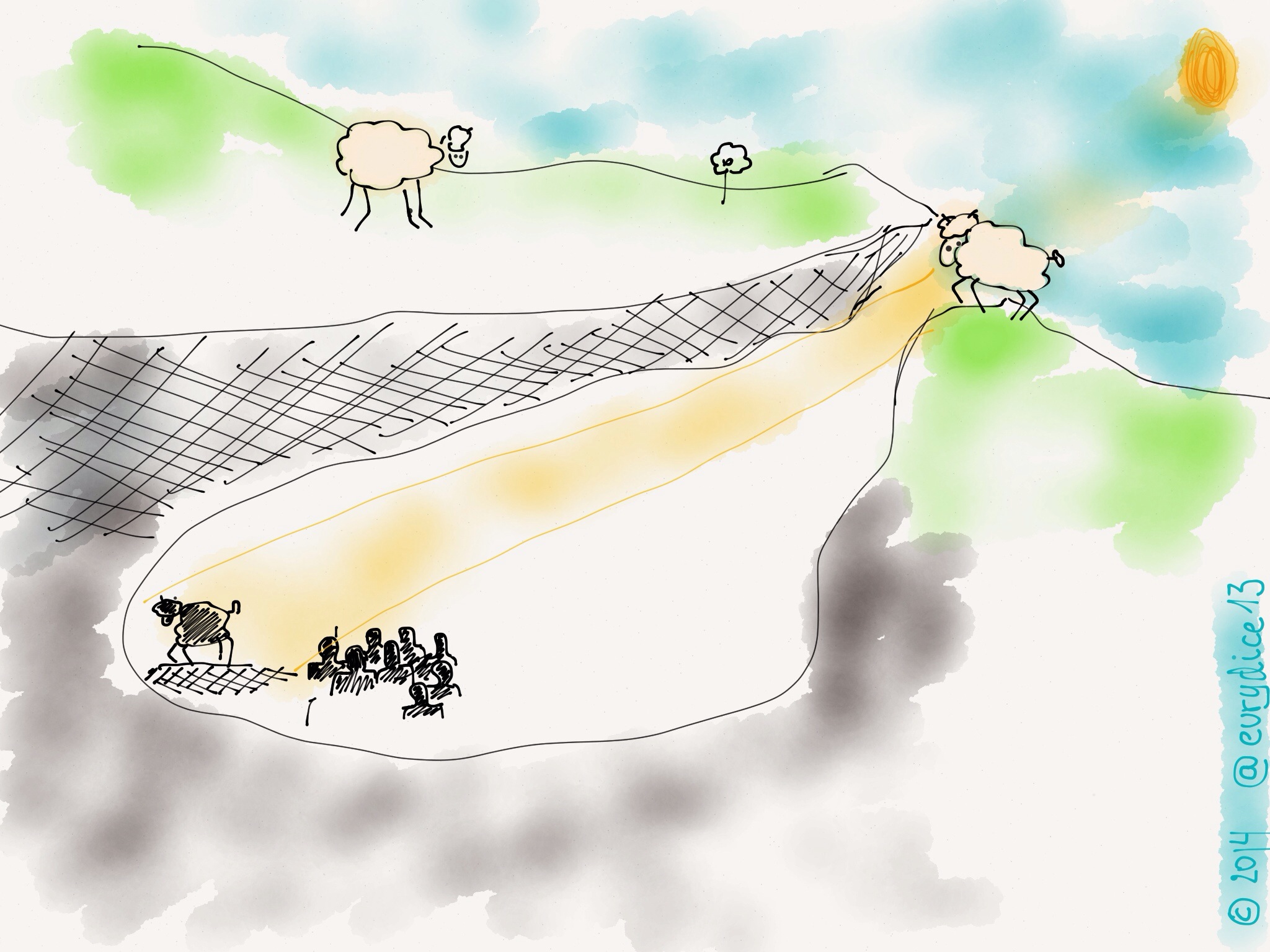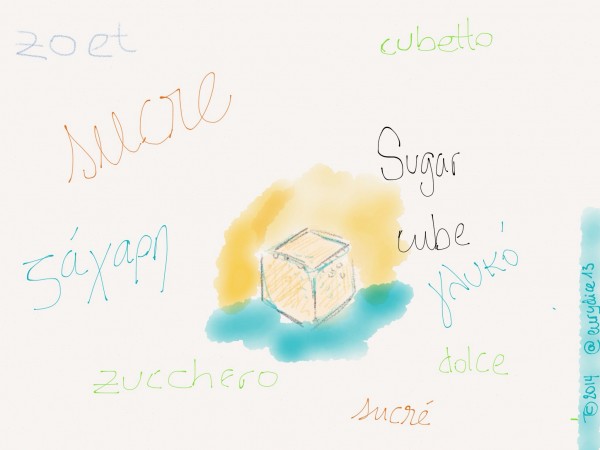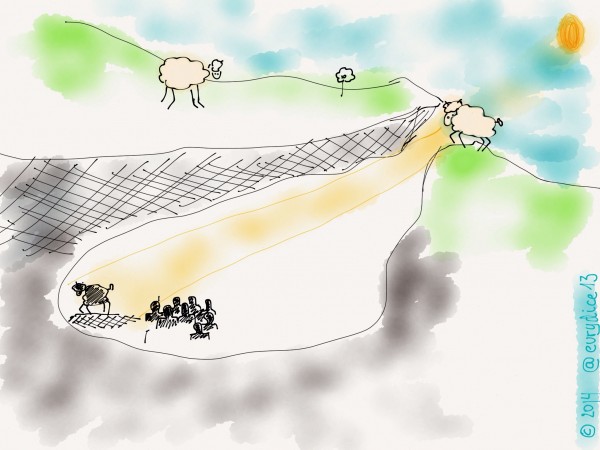Today is UNESCO International Mother Language Day. This year, we celebrate Turkish. My mother language is Greek, and oddly my mother and grandmother both spoke turkish as well. We’re not your typical Greeks.
Consider most Europeans, for instance. As a vast majority, most of us are born and raised in a single country. Our education systems attempt to teach us a foreign language or two, but that doesn’t succeed as often as it should. We all grow up to only speak, read and write comfortably in a single language. Luckily, in the UK, this is English, the lingua franca of business dealings in the 21st Century. But is this enough?
In honour of UNESCO’s International Mother Language day (21st February), this is a blog post about languages, concepts, and why they help us communicate better.
Personally, because this is a personal blog so “me” talk is expected: I am an odd exception to the “Europeans speak at most two languages” rule. My mother tongue is Greek. I also read, write and speak French, English, and Italian. That takes the count of fluency to four languages.
Why am I talking about languages? For a start, I like them. I think they are useful. I often joke that I learnt the most useful cuisine and fashion-related languages out there. Think about it… French, Italian, English, Greek… Christian Dior and éclairs au chocolat… Dolce & Gabbana and cannoli… Alexander McQueen and bangers & mash… Mary Katrantzou and Souvlaki… Fashion weeks, anyone?
“Ok, so you like to eat good food and wear beautifully made clothes. Anything real you do with languages?”
Yes. Communicate better. Well, I think so. Do I?
Funnily, I am not using languages directly very much. Indirectly, however, they have proven incredibly useful working in UX, communications and branding.
Why? Because I’ve noticed my brain functions on a different level. I function, think, and visualise things without needing to use actual words found in dictionaries. There are concepts, and there are languages I communicate them in.
There is more than one word/representation for one thing. My conceptual vocabulary encompasses all the languages I have studied, things I have seen and experienced, idioms visualised, and more.
“Research indicates that a multilingual brain is nimbler, quicker, better able to deal with ambiguities, resolve conflicts, and resist Alzheimer’s disease and other forms of dementia longer.” [Multilingualism]
My argument is that knowing one language means that when William looks at a sugar cube, he sees a “sugar cube”. He is limited by those two words.
When *I* look at a sugar cube, I think of “sucre”, “zucchero”, “ζάχαρη”, “cube”, “Κύβος”, “zuiker”, “zoet”, “sweet”, “dessert”, “γλυκό”, “crystals”, and more.
“Linguistic determinism would hold that language entirely determines the range of possible cognitive processes of an individual.” In other words, the vocabulary we have available to us restricts our thinking. More languages mean more words, more concepts, and more freedom.
That sugar cube, for a polyglot, is no longer a single word or even 5 or 6 words. They blur. And we (ok, I) see the ghostly concept behind the words. I think everyone has this mechanism of abstraction, but I’d like to argue that polyglots have a more prominent one, that many are unaware of.
allegories, archetypes, and shadows in a cave
Think of Plato’s allegorical cave. We sit in a cave looking at a wall of shadows projected by the perfect entities walking outside. We don’t know that though. The cave is our world, all we see are the shadows, thinking they are real, not the ideal objects outside. We are trapped, never to turn, never to see the ideal archetypes.
“the structure of a language affects the ways in which its respective speakers conceptualize their world” (linguistic relativity)
I believe that knowing multiple languages, is like sitting in a kaleidoscope of caves, with multiple projections, one from each language, taking a collection of words, synonyms, antonyms and concepts from each. And that the ability to see the overlap of all of those gives you a much clearer reconstruction of the ideal concept-archetype outside the cave.
“The idea of linguistic relativity can be interpreted to mean that individuals who speak multiple languages have a broader, more diverse view of the world, even when speaking only one language at a time.”
[Linguistic relativity]
multiple languages, and personalities?
My flatmate and long-term good friend has told me several times that I am a different person, I have a different personality, depending on what language I speak. I’d like to think he is nuts… But…
I am indeed more prone to using crude and direct expressions in Greek than I am in English. And I am much more verbose and lyrical in French. I do swear more in Greek than in the other languages, and I use much more slang (both argot and verlan) in French. There actually are differences in me and how others will therefore perceive me.
“Some bilinguals feel that their personality changes depending on which language they are speaking thus multilingualism is said to create multiple personalities.”
[Linguistic relativity]
My friend Robert (@fransgaard) told me about the Japanese language, and how it has this level of abstraction built into it. There is one language, one set of concepts, but many ways of writing, and sometimes of pronouncing, that same exact concept, which ends up meaning something slightly different every time it is expressed depending on the context. Sounds like the Japanese function on a higher conceptual level than we Europeans do.
I wonder if their communication skills are therefore enhanced. And am daunted at the idea of trying to learn their language so I can find out. Or maybe I’d end up discovering a fifth personality of myself…
—
some questions for you!
Hello reader, I’d be curious:
- What is your mother tongue?
- What other languages do you speak, read and write fluently?
- What other languages have you studied without being able to reach fluency?
- Do you feel that you express yourself differently in each language?




Well, answering directly first of all:
1. English is my mother tongue.
2. I can’t speak any other fluently, but I can think reasonably fluently in a German manner.
3. German, French and now Swedish.
4. Almost certainly.
As someone who’s gone through voice therapy, I’ve found I’m taking a particular interest not only in the structure of a language but the way people pronounce it, and inflect their sentences. I’m not sure I’ve formed any direct insight on that yet, but it informs the way I view foreign communication.
It’s been many years since I practiced German to a reasonable standard, but the move to Stockholm means I’m observing a thoroughly bouncy sort of language. One has to really put effort into every phoneme here, whereas English can be (and often is) mumbled into obscurity. This seems to have artistic/poetic relevance, but Swedish is also a good language for communication. It’s hard to be ambiguous here, and although most of the population speak fluent English (seriously, it’s like a cheat code here), they speak it in a Swedish way – sometimes bluntly, and always correctly. I think it very likely that immersing myself here will have positive repercussions for my documentation and writing skills. :)